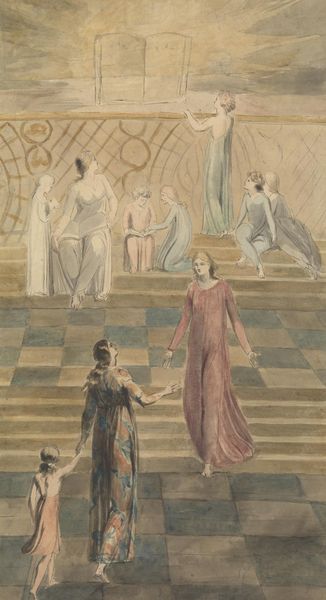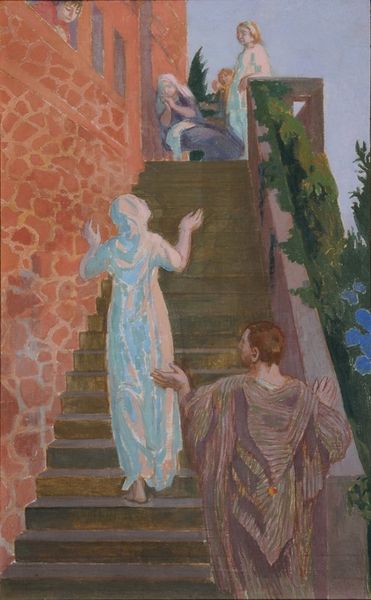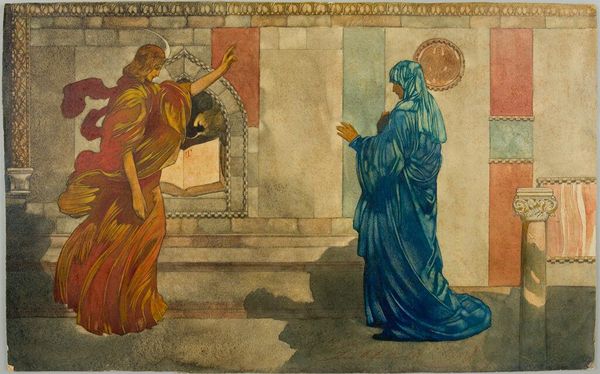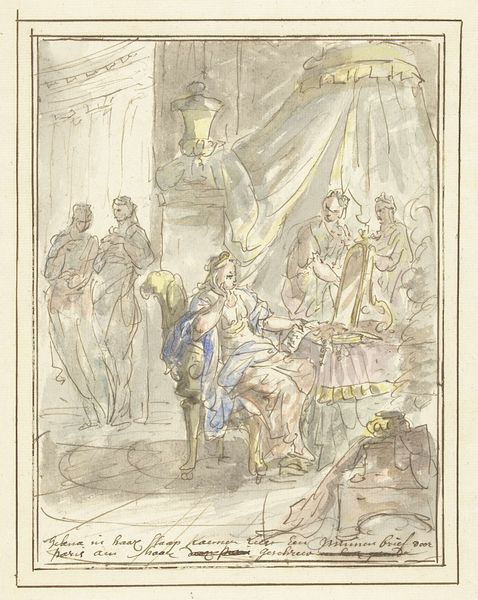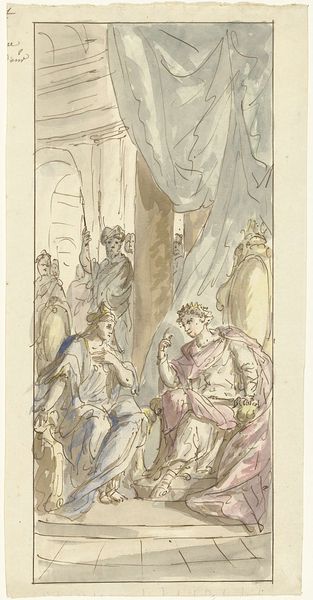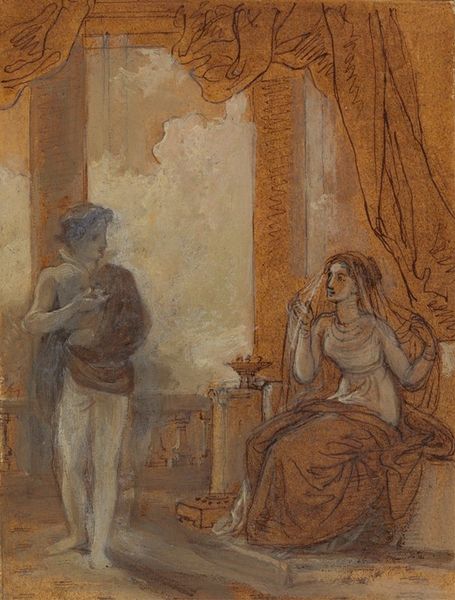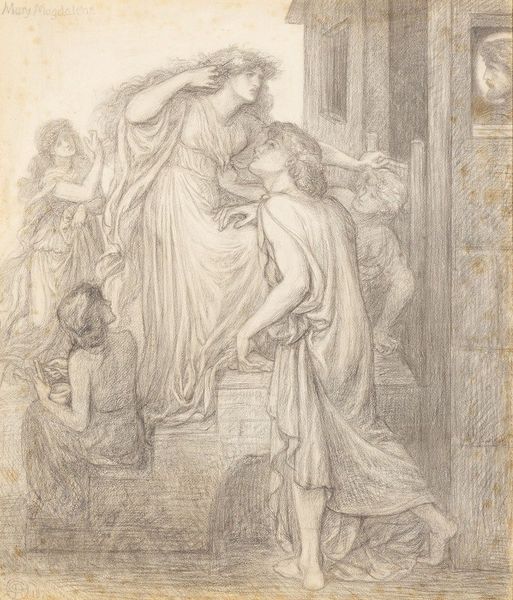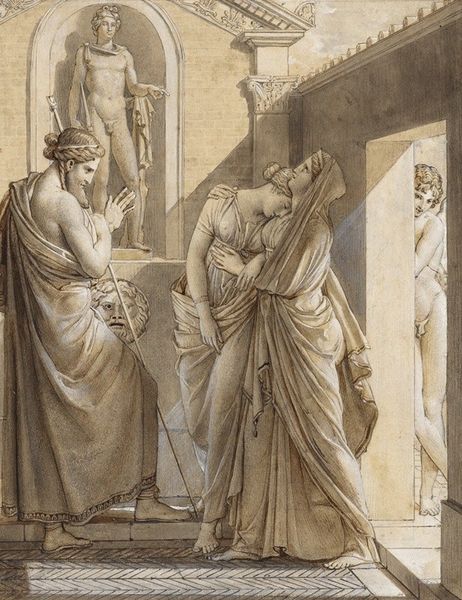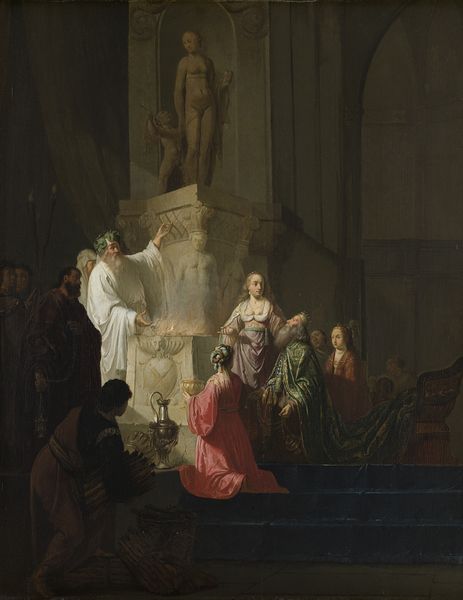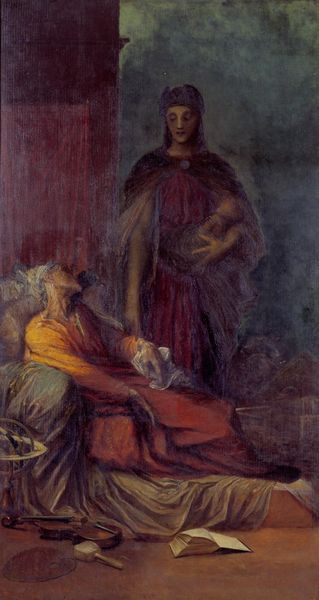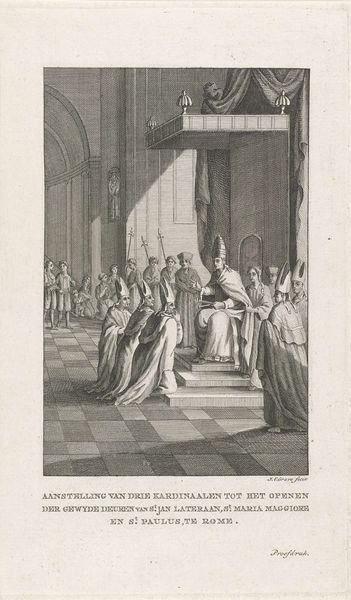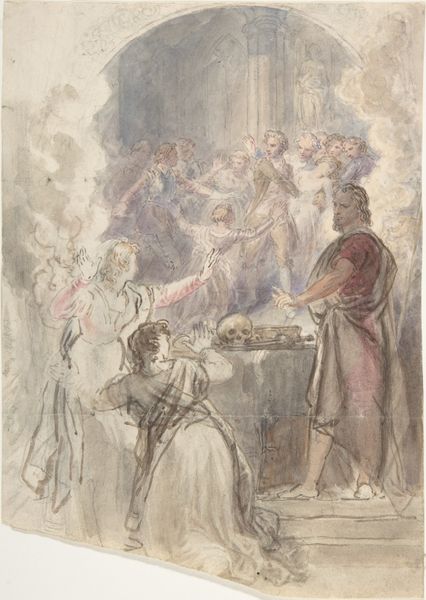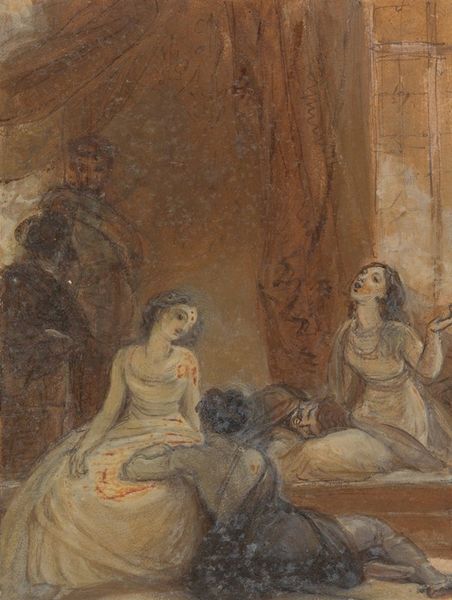
An Allegory of the Bible. Verso: The Shins of an Écorché Male Figure c. 1780 - 1785
0:00
0:00
Dimensions: support: 615 x 349 mm
Copyright: CC-BY-NC-ND 4.0 DEED, Photo: Tate
Editor: This is William Blake's "An Allegory of the Bible," a watercolor in the Tate collection. It evokes a sense of ascending, perhaps towards enlightenment. What do you see in its structure, its composition? Curator: The composition is divided into distinct registers, a vertical arrangement emphasizing hierarchical relationships. Note the checkered floor, its sharp geometry contrasting with the flowing robes. Observe how lines converge, guiding the eye towards the central book form. Editor: So the book is the focal point, not the figures? Curator: The figures function as visual vectors, their gestures and positions directing our gaze. The book, rendered almost immaterial, suggests a transcendental object. What do you make of the muted palette, the delicate washes? Editor: I see a contrast between the earthly plane and the spiritual one, delineated by color and form. Thank you, that was enlightening. Curator: Indeed. The interplay of form and void reveals the essence of Blake's vision.
Comments
tate 9 months ago
⋮
http://www.tate.org.uk/art/artworks/blake-an-allegory-of-the-bible-verso-the-shins-of-an-ecorche-male-figure-t01128
Join the conversation
Join millions of artists and users on Artera today and experience the ultimate creative platform.
tate 9 months ago
⋮
The title of this work is not Blake’s, but its theme seems to be the revelation of knowledge. Unusually, the foreground and background were both painted initially with a single base colour. The figures and the screen behind those in the background were applied straight onto the white paper. The screen and the lower half of the sky behind it were originally painted a deep rose, with a red lake pigment that is probably brazilwood. This has lost so much colour, except at the edges, that it gives the unintended effect of a flat brown base tone to the whole screen. Gallery label, September 2004
